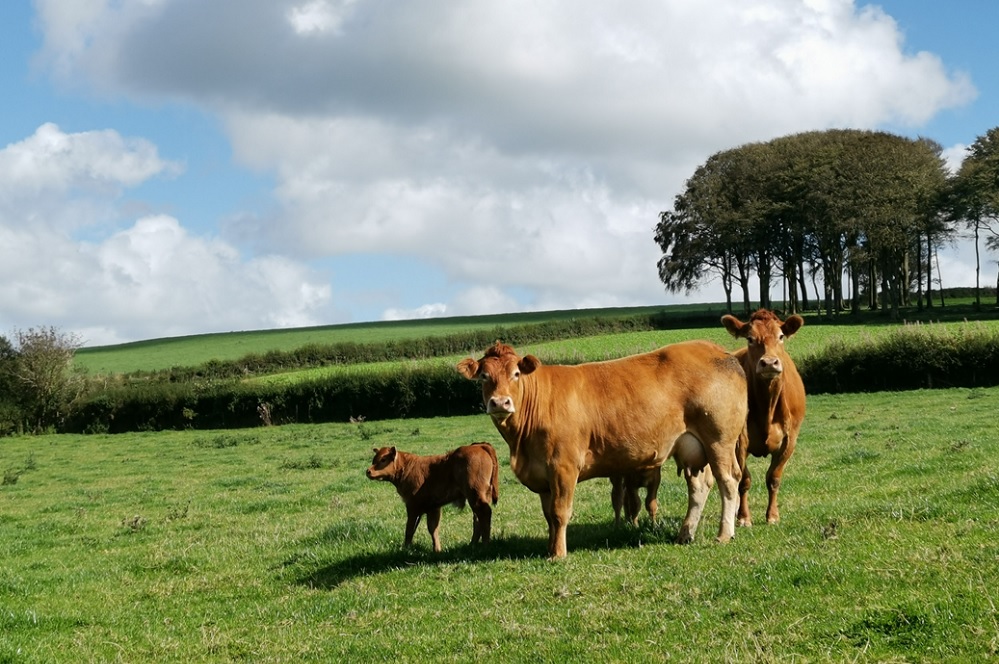It’s not the cow, it’s the how: Why we need to tackle mixed messages about meat and climate change

Catherine Smith, Chair of Hybu Cig Cymru
In a recent article on Nation.Cymru, Keith Darlington puts forward the view that government-induced dietary change is a way to tackle our climate emergency.
His diagnosis of the problem, however, rests on a flawed interpretation of the role of methane and livestock agriculture.
To start on where we agree. Climate change is an urgent problem for humanity, and the recent IPCC report is a stark warning of the consequences of inaction to curb man-made emissions. All sectors and all countries need to play their part.
Methane is an important climate gas. However, in pointing the finger at agriculture Keith Darlington’s article makes assertions which are wide of the mark.
The statement that methane “is mainly produced from animal farming” is incorrect. Of the human-induced sources of methane, the data generally places livestock agriculture at around a quarter of emissions.
Bousquet’s analysis estimates that livestock farming produces 27% of anthropogenic methane. The fossil fuel sector is responsible for 33%, gases from landfill 16% and – importantly from the point of view of debates about diet – rice production accounts for 9% of the total. Figures from the International Energy Agency tell a similar story.
The IPCC report is clear – methane is important, but we have to be more careful and accurate in how we measure it.
Carbon dioxide takes centuries to degrade in the atmosphere, so burning fossil fuels adds to the stock of the gas. Methane however is a flow gas which degrades quickly and, if in proper balance, is part of a naturally-occurring cycle.
Informed
It’s also vital to consider the vast differences between systems of livestock production across the world.
Intensive agriculture with increasing livestock numbers as practiced in some countries is indeed a serious methane problem.
But this is not the Welsh way of farming. Here, our numerically-stable flocks and herds produce high-quality protein efficiently from land which is unsuitable for other types of food production, using what we have in abundance – grass and rainwater. We do not use intensive units or make heavy use of imported feeds which may contribute to deforestation.
Recent work by Cambridge biologist Donald Broom comparing beef production systems around the world concluded that the most sustainable systems look very much like the Welsh one.
Yes, it’s important to do more where we can, and the ‘Welsh Way’ vision offers a roadmap to do that. But farmers here already make a positive contribution through sequestering carbon in soils and hedgerows, and cutting emissions further through projects such as the Red Meat Development Programme.
Given this, a public campaign to demonise one food group makes little sense, and risks letting the biggest industrial carbon emitters off the hook. Our average red meat consumption is in line with government health guidelines; a blanket message to reduce it could add to health problems that we see in some groups in society who consume too little iron, zinc and other essential minerals.
Instead, consumers can be encouraged to make more informed choices about how and where their food is produced.
As the saying goes, “it’s not the cow, it’s the how”.
Support our Nation today
For the price of a cup of coffee a month you can help us create an independent, not-for-profit, national news service for the people of Wales, by the people of Wales.







This argument is weakened when we recognise that methane is about 25 times more potent than carbon dioxide over a hundred year timeframe Overview of Greenhouse Gases | US EPA
The report actually says “Pound for pound, the comparative impact of CH4 is 25 times greater than CO2 over a 100-year period.” But because CO2 lasts up to 1000 years in the atmosphere (whereas CH4 lasts up to 12 years) in order to conduct the “pound for pound” test for 1000 years, you would need to produce 83.3 times as much CH4 than CO2 in order to cause 25 times as much impact.
That is US data which is not relevant to Wales and the rest of the world. It only relates to greenhouse gases in the USA
Methane from grazing ruminants is part of the natural carbon cycle and does not need to be counted.
More research is needed into the possibility of reducing ruminant methane production by spiking their food with seaweed.
Only if they are in CAFOs.